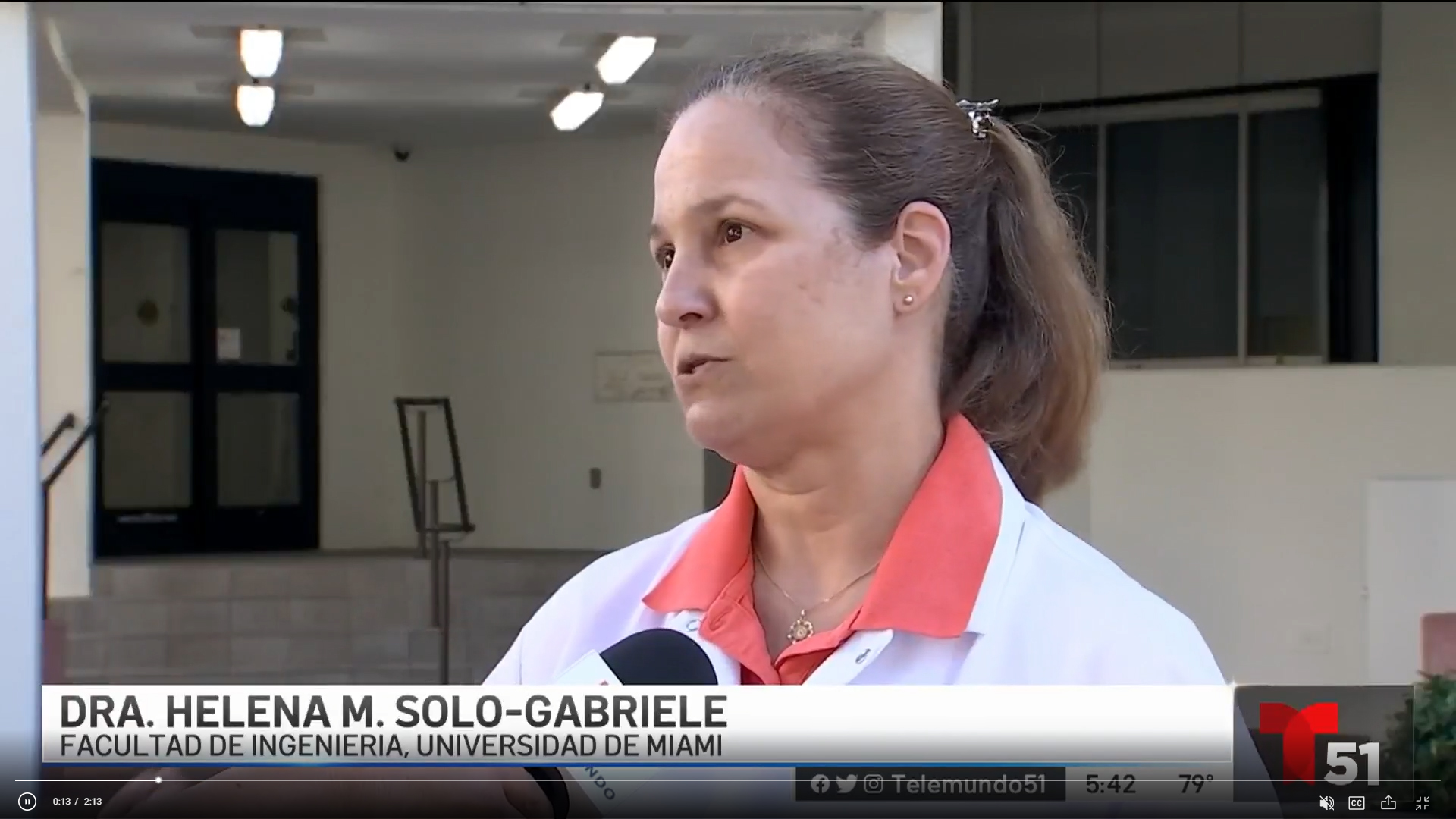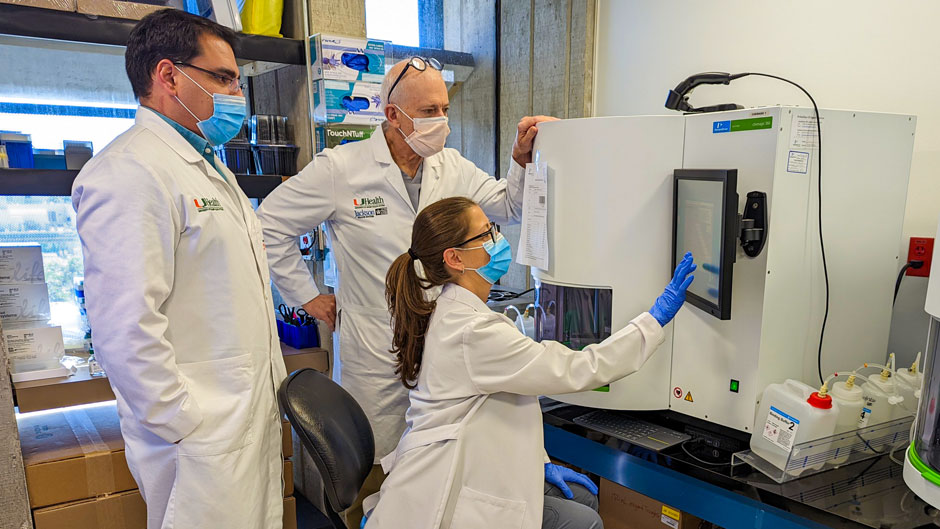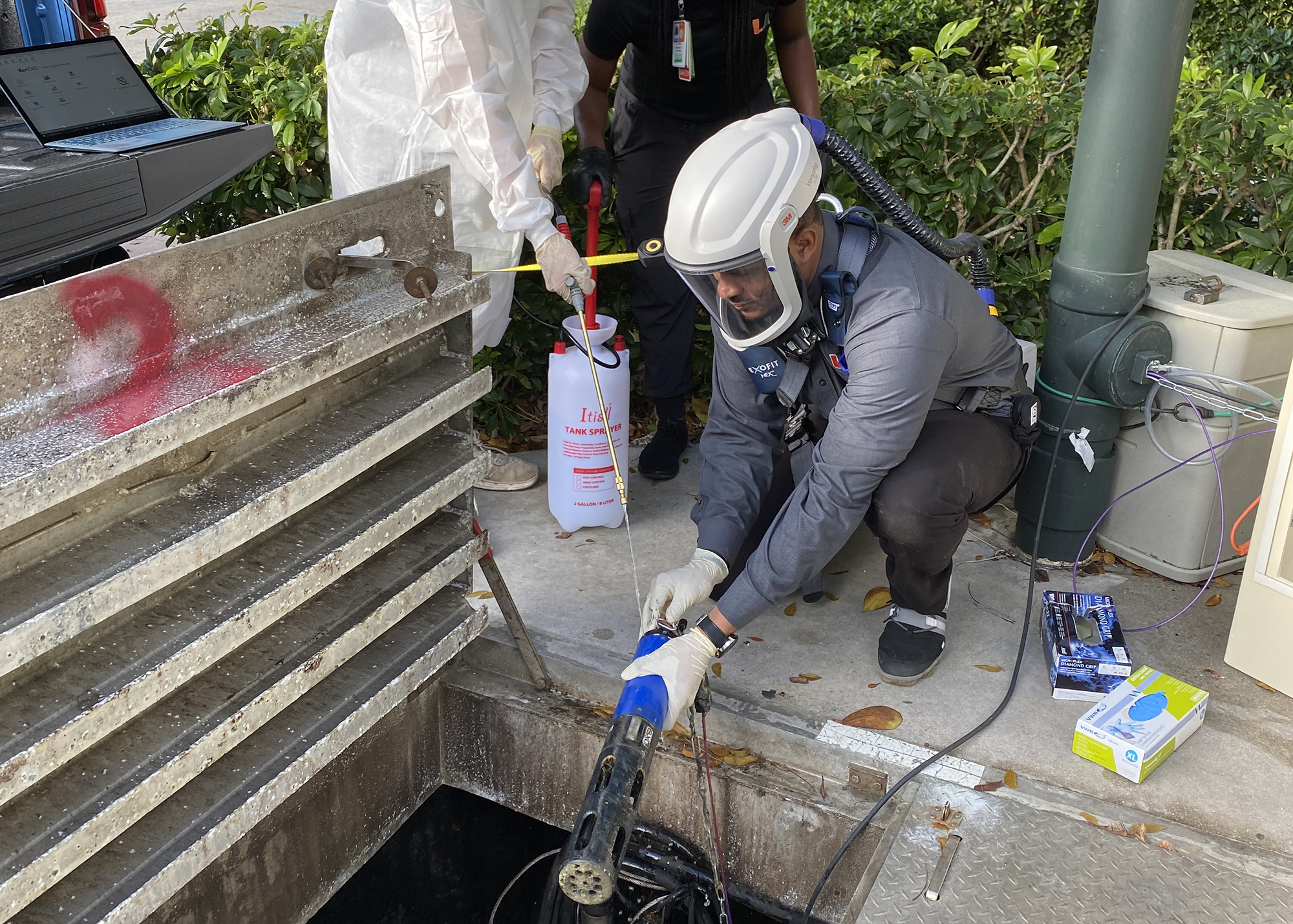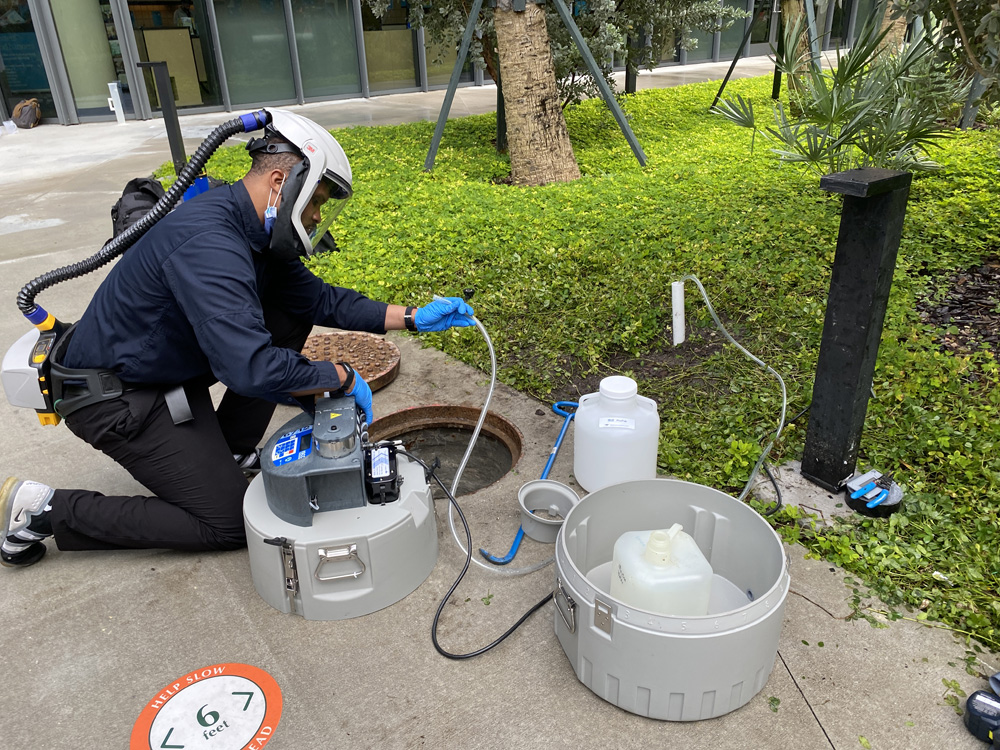As the number of fully vaccinated people who test positive for COVID-19 inches up, Dr. Bhavarth Shukla, UHealth’s medical director for infection control and employee health, explains the positive news—the vaccines are preventing serious illness, hospitalizations, and deaths.
The headlines are unsettling. Almost every day, we read about another fully vaccinated person testing positive for COVID-19. Last month, Kara Eaker, a perfectly healthy alternate on the U.S. women’s gymnastics team, lost any hope of competing in the Olympics when she had to isolate in Japan.
This week, Republican Sen. Lindsey Graham of South Carolina announced that the flu-like symptoms he experienced over the prior weekend were indeed a mild case of the novel coronavirus.
And in between, the Centers for Disease Control and Prevention (CDC) reversed course and recommended indoor mask use again after finding that a shocking 74 percent of the 469 people who tested positive after seaside gatherings in Provincetown, Massachusetts, were fully vaccinated.
 But as unnerving as these so-called breakthrough cases may be, Dr. Bhavarth Shukla, UHealth’s medical director for infection control and employee health, said they show that COVID-19 vaccines are doing exactly what they were designed to do: prevent serious illness, hospitalizations, and deaths. “I don’t have exact numbers, but I can tell you, anecdotally, that the hospitals here are barely seeing any breakthrough cases in our latest surge,” he said. “Almost everybody we’re seeing is unvaccinated, and they’re a younger demographic. That’s not something we saw last year.”
But as unnerving as these so-called breakthrough cases may be, Dr. Bhavarth Shukla, UHealth’s medical director for infection control and employee health, said they show that COVID-19 vaccines are doing exactly what they were designed to do: prevent serious illness, hospitalizations, and deaths. “I don’t have exact numbers, but I can tell you, anecdotally, that the hospitals here are barely seeing any breakthrough cases in our latest surge,” he said. “Almost everybody we’re seeing is unvaccinated, and they’re a younger demographic. That’s not something we saw last year.”
The assistant professor in the Miller School of Medicine’s Division of Infectious Diseases addressed several questions and explained why breakthrough cases are not only expected but indicators of success.
Last month, the CDC reported that 6,587 fully vaccinated people in the U.S. who tested positive for COVID-19 were hospitalized or died. Why doesn’t that suggest the vaccines are failing?
They are not failing. If anything, that shows the vaccines are succeeding. Those deaths represented less than .0001 percent of the 163 million people who were fully vaccinated at that time. So, what we saw in the clinical trials is proving to be true. Which is, if you’re vaccinated and exposed to COVID-19 your chances of ending up severely ill are very small. If you’re vaccinated, you won’t be hospitalized; you won’t die. And, if you have any symptoms, they’re likely to be mild, like a common cold. That’s a tremendous benefit. I think people erroneously think that getting the vaccine means that they are not going to get infected. But the primary endpoint of the clinical trials was preventing severe infection and hospitalization. So, the bottom line is that the vaccines are working phenomenally.
Yet nearly three-quarters of the Provincetown visitors who were infected during the July outbreak were vaccinated. How can that be?
There are a lot of variables to look at. But any respiratory virus is going to spread far more easily if you’re in a crowd. Plus, this happened during sort of a transition phase—when vaccinated people were shedding their masks and gathering again. Had everyone been masked, there would have been some mitigation in terms of spread. That’s one of the reasons the CDC went back to their mask requirements. But if you look at the data from the case study, it shows the vaccines worked. Most of the positives were for the highly contagious Delta variant, which transmits much more efficiently because it is thought to replicate faster in the nose. Yet only five people were hospitalized, and no one died.
Is that why the CDC decided to stop tracking breakthrough infections that don’t result in hospitalizations or deaths?
Precisely, because ultimately what really matters is: Are you getting sick? Is your loved one going to die? Vaccines are terrifically effective at preventing the things that we really need to be afraid of, not a few sniffles that go away in a couple of days. Right now, the general public’s perception of a breakthrough case is people who test positive after vaccination. But looking at the data from the trials, I would say that a breakthrough is really when someone who has been vaccinated now requires hospitalization because they’re so sick.
The Provincetown case raised another question about immunity—that the amount of virus detected in the airways of people who tested positive there were similar, regardless of their vaccination status. What does that tell us?
That did raise a lot of eyebrows from the scientific perspective. The big question is: If you have a mild infection or an asymptomatic infection after vaccination—which again is rare—are you then capable of transmitting the virus to someone else? Is it possible that you are infectious for a shorter period? Is it possible you’re not infectious at all? Is it possible that the virus in your nose is now neutralized because you’re producing antibodies? We really don’t know, which is another reason the CDC reversed its guidance on masks.
Were previous vaccines for diseases like measles, mumps, and rubella similarly designed only to mitigate rather than prevent illness? And if so, does the fact that we’ve all but eliminated those diseases have to do with the herd immunity conferred by how universal childhood vaccinations were?
To answer that I’d have to look at how each of those trials was set up. But the point is exactly right. It doesn’t even matter anymore because it was the universal acceptance of those vaccines that literally all but got rid of those diseases. And when you see them come back, like measles, it’s where people have stopped accepting the vaccines. The bottom line is we could achieve herd immunity against COVID-19 if almost everyone was vaccinated.
So how can we accomplish that?
My plea would be to the people who are vaccinated: Help us by talking to your colleagues, friends, and family members and share your experience about getting vaccinated. Encourage others to join us. People need to talk to other people and tell them if we all do this, we can all have a better chance of getting back to normal.







